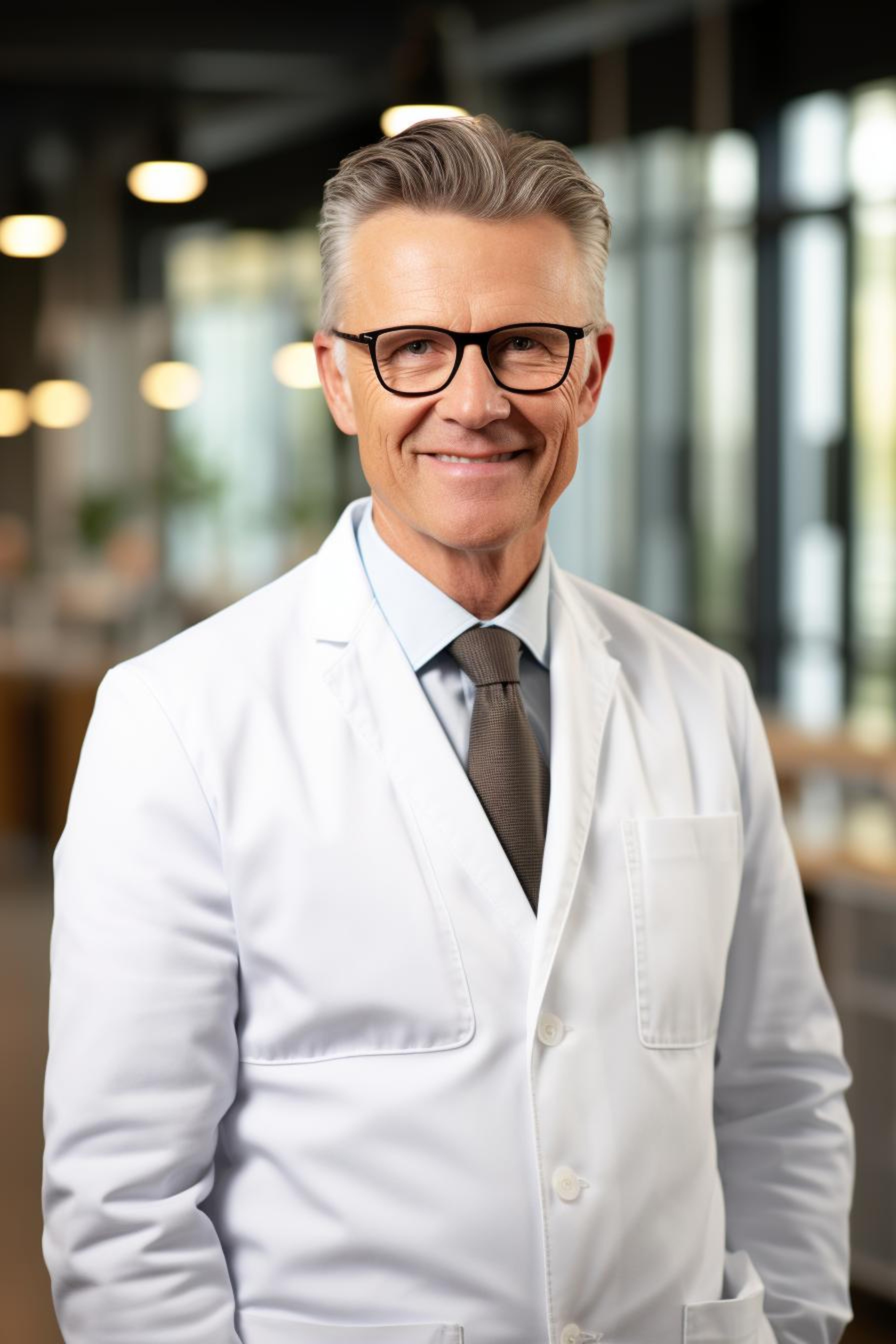Flexible Sigmoidoscopy in Northwest Arkansas
What exactly is a flexible sigmoidoscopy?
A flexible sigmoidoscopy is an endoscopic procedure in which a long, thin, bendable scope is inserted into the rectum and slowly advanced into the lower third of the colon. Therefore, this procedure is somewhat limited in that not all of the colon will be seen. The pipe has a camera and a light at its end, which grants the doctor the ability to analyze the colon’s lining. A sigmoidoscopy might be used to:
- Determine the underlying cause of digestive symptoms, including:
- Unusual x-ray outcomes
- Pain in the abdomen
- Bleeding
- Diarrhea
- To screen for polyps and colon cancer.
Our gastroenterology providers routinely conduct flexible sigmoidoscopy procedures for Arkansas patients. In the event that you are dealing with any worrisome symptoms in relation to your GI tract such as those listed above, connect with GI Alliance of Arkansas to receive help in deciding if a flexible sigmoidoscopy could be a helpful test for you.

What can I expect the day before my flexible sigmoidoscopy?
You will be issued directions by your physician about the necessary bowel preparations to ready you for your flexible sigmoidoscopy procedure. The majority of patients will be on clear liquids for the entirety of the day before the procedure. There are many distinct types of laxatives to clean out the colon. It is imperative that you adhere to the directions provided to you by your GI Alliance of Arkansas doctor. In addition, there will be instructions regarding any medicine you are currently taking. The majority of the time, any medications may be continued as usual. However, in certain circumstances, especially in individuals on blood thinners (e.g., Coumadin®, warfarin, Plavix®, aspirin, anti-inflammatories) and in those with diabetes, individual directions will be given. You will be directed not to take anything by mouth after midnight except for medications.
What should I expect on the day of my flexible sigmoidoscopy?
The staff at your local endoscopy center will instruct you to arrive for your flexible sigmoidoscopy 1 – 1.5 hours ahead of time. This is to ensure you have time to complete paperwork and get ready for the exam. You will be asked to put on a medical gown. Usually, an intravenous (IV) catheter will not be started since, in general, sedation is not administered with this procedure. You might be hooked up to equipment that will permit the provider and staff to watch your oxygen levels, heart rate, electrocardiogram, pulse, breathing, and blood pressure during and after the exam.
After you are inside the exam room, you’ll be directed to lie on your left side on the table. The physician will perform an exam of your rectum. The sigmoidoscope will then be slowly positioned into the rectum. The scope will then be carefully advanced throughout the sigmoid colon. A tiny bit of air will be inserted by way of the scope into the colon to help the physician see. Any liquid still in the colon after the preparation can be rinsed and suctioned out by the scope. Depending on what your doctor notices, several things can be performed at the time of the exam, including removal of polyps, control of bleeding, and biopsies. At the end of the exam, all possible remaining fluid and air are removed from the colon by way of the scope. Depending on the results, the exam takes approximately 5 – 15 minutes.
Because anesthesia is not typically necessary, once the procedure is finished, you will be asked to change back into your clothes and will be discharged from the endoscopy unit. Assuming sedation is not necessary, you’ll be permitted to drive and perform your usual activities. The majority of patients are able to drink and eat regularly following their discharge from the endoscopy unit, but unique directions regarding activity, eating, and medications will be provided in advance of discharge. After the exam, the nurse and/or doctor will review the results of the procedure with you. You will also be sent home with a written report. You will be alerted of any biopsy results within one week.
What are the risks of a flexible sigmoidoscopy?
By all standards, sigmoidoscopy is a very safe test. Overall, complications are seen in fewer than 1% of patients. Most complications are minor. Still, should a complication occur, it could create a need for surgery and/or hospitalization. Before the procedure, a consent form will be reviewed with the patient by the nursing staff. Should any concerns or questions arise, these can be reviewed with your specialist ahead of the procedure.
Bleeding could happen with biopsies and the removal of polyps. Again, a concerning amount of bleeding, which could involve a blood transfusion or hospitalization, is highly unusual. Still, bleeding has been known to occur during the procedure or up to two weeks after the exam in the case that a polyp is extracted.
Perforation or puncture of the colon can occur. This may be realized at the time of the exam, or it might not be apparent until a short time later. In most cases, a puncture will require hospitalization and surgery. This is an unusual complication, even when polyps are extracted. It is imperative that the patient contact the provider’s office urgently if symptoms manifest after the exam like growing abdominal pain, fever, or bleeding.
As with any other procedure, a sigmoidoscopy is not perfect. There is a slight, accepted risk that tissue abnormalities — including cancer and polyps — can be missed at the time of the procedure. It is vital to continue to maintain check-ups with your providers as instructed and inform them of any new or recurring symptoms. Please speak with your GI Alliance of Arkansas provider in the event that you think of any questions or concerns.
Are there alternatives to a flexible sigmoidoscopy?
To a large degree, the alternatives to a flexible sigmoidoscopy will be based on the reason for ordering the procedure to start with. There are several x-rays that can look at the colon, including a barium enema or virtual CT scan. These methods are, however, only diagnostic exams. Mitigation of any suspected anomalies will call for colonoscopy, surgery, or sigmoidoscopy. To discover more regarding flexible sigmoidoscopy in Arkansas or to hear about any alternatives for treating and diagnosing your problem, we suggest you call our GI team.

Advanced diagnostic testing
Flexible Sigmoidoscopy FAQs
How effective is flexible sigmoidoscopy in identifying colon issues?
Flexible sigmoidoscopy is a reliable diagnostic tool for identifying conditions in the lower colon, like polyps, cancers, and inflammatory bowel disease. However, it only inspects the sigmoid colon and rectum, so issues in the upper colon are not detectable with this procedure. A complete colonoscopy may be recommended to examine the entire colon thoroughly.
How frequently should I undergo a flexible sigmoidoscopy for colon cancer screening?
The recommended interval for flexible sigmoidoscopy as part of colon cancer screening depends on individual risk factors, including age, family history of colon cancer, and personal health history. Typically, individuals at average risk are advised to undergo this procedure every 5 to 10 years, beginning at age 45. Your GI provider will tailor the screening schedule to your specific health profile.
What actions should I take if I have symptoms following a flexible sigmoidoscopy?
Mild symptoms such as bloating or gas are common after a flexible sigmoidoscopy. However, if you experience severe symptoms like ongoing pain, significant bleeding, or fever, immediate contact with your healthcare provider is crucial. Such symptoms may signify serious complications, including perforation of the colon or severe irritation, and require urgent medical care.
